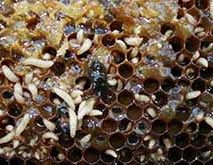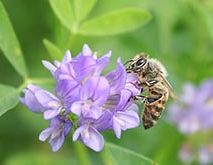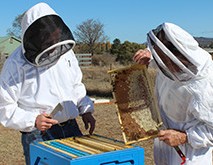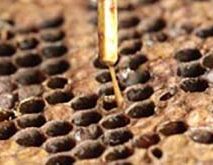30/04/2018 – 4:39 pm
Apiarists are on high alert following a surge in small hive beetle populations due to dry spring conditions and a wet, humid end to summer. First detected in Australia in 2002, small hive beetle (SHB) is now the largest and leading apiary pest in warm, moist locations of eastern Australia. The pest feeds on bee […]
Read more





